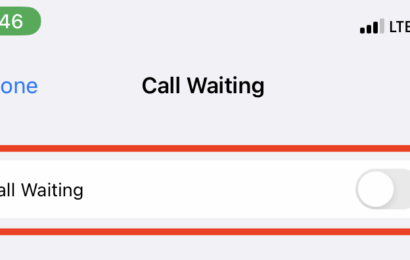AdGuard vs uBlock Origin
Contents
The web is funded by ads. Websites need them for monetization. However, we users absolutely hate seeing them, leading to the rise of adblockers. Learn more about today’s well-known adblockers by checking our AdGuard vs uBlock Origin comparison review below.
AdGuard and uBlock origin are among the most popular adblockers available today. While both share comparable usage numbers and similar ratings in different app stores, the two adblockers differ in architecture and business model.
AdGuard vs uBlock Origin: Privacy and source code transparency
- AdGuard
AdGuard released its source code on GitHub so it’s an open-source program even if it isn’t always free. Users are welcome to go through the code and ensure AdGuard isn’t doing anything fishy with their data.
- uBlock Origin
uBlock Origin’s been open source from day one. Users can review and contribute to uBlock Origin’s source code on GitHub in order to improve the extension.
AdGuard vs uBlock Origin: Cost
- AdGuard
The AdGuard browser extension is available free of charge. AdGuard Pro which runs on Windows, Mac, and iOS starts at $2.49 a month for three devices. The family plan costs $5.49 a month and a single license can work on up to nine devices. These subscription plans are billed annually.
AdGuard also sells a lifetime license if you don’t feel like paying an annual subscription. The lifetime license costs $79.99 for the three-device personal plan and $169.99 for the nine-device family plan.
AdGuard Pro runs on a network level rather than a browser one. It performs adblocking and any other specified content filtering on all the internet-capable applications on a device.
- uBlock Origin
uBlock Origin is available only as a browser extension for PC and the creator has pledged that the product will remain free and open-source forever. Users are welcome to donate to the project but it’s entirely voluntary. Donations are funneled to the developers maintaining their blocklists.
AdGuard vs uBlock Origin: Availability on mobile
- AdGuard
AdGuard is available on iOS and can block ads in Safari and on other native apps. AdGuard used to have an Android version until Google upped and banned all adblockers from the Play Store.
You can still install AdGuard on your Android device but you will have to download the app from the AdGuard website and then tweak your security settings to allow the installation of apps from unknown sources.
- uBlock Origin
uBlock Origin has no mobile versions. The extension is only available for PC browsers.
Ad-blocking effectiveness
- AdGuard
AdGuard blocks all ads and cannot be bypassed except by manual disabling. There are frequent updates to ensure it is up to date. The pro version, available on Windows, Mac, and iOS, blocks all ads on a device instead of just a single browser. AdGuard also works on Safari 13.
- uBlock Origin
uBlock Origin blocks all ads on the browsers it’s installed in. uBlock does not work on Safari 13, however. It is due to Apple neutering adblockers and many other extensions on Safari 13 by limiting the number of instructions they could give the browser to 50,000. AdGuard, for example, needs over 300,000 instructions to function.
While AdGuard found a workaround to Apple’s limitations, uBlock Origin and many other free browser ad-ons shut down their Safari extensions after the update in 2019. If you’re on Mac, you will have to use Firefox to get uBlock Origin.
Strain on system resources and operating speed
- AdGuard
AdGuard runs on a network level, that is all web traffic passes through it. This makes AdGuard place quite a strain on your system resources. On less powerful computers, AdGuard can produce a noticeable lag in browsing speed.
- uBlock origin
uBlock Origin is a browser extension so it’s incredibly lightweight. Its operation causes no slowdowns. uBlock Origin was also designed with CPU and memory efficiency as key features, a factor that contributes to its minimal impact on system resources.
Content filtering extent
- AdGuard
AdGuard Pro (the paid network-operating version, not the extension) can provide broad-spectrum content filtering because it regulates all internet traffic from your computer. It has access to the traffic of all internet-capable applications on your device.
Let’s say for example you have a teenage child and you don’t want him viewing adult content or visiting sites like 4chan. If you’re only relying on a Chrome extension, then that child could just switch to Firefox, Edge, Internet Explorer, or download any of the dozens of browsers available on the internet.
But because AdGuard operates on the network level, content filtering, be it ads or unwanted websites, works on all internet-capable apps on the computer. You don’t have to go manually installing an extension on every browser.
- uBlock Origin
uBlock Origin is a browser-based extension so its content filtering can be circumvented by simply switching browsers or downloading a different one.
uBlock vs uBlock origin: Beware of the difference

uBlock and uBlock Origin possess comparable logos and a similar-ish UI but they are not the same product. They were once, back in 2015, but not anymore.
uBlock was first developed and published in 2014 by Raymond Hill. After disagreements with his partner Chris Adjoudi over the direction of the extension in 2015, Hill created uBlock Origin, a fork of the original uBlock.
While Adjoudi focused on raising money and promoting the product, Hill focused on improving the product itself.
Seven years later the results couldn’t be any more different. uBlock Origin boasts over 10 million users on Chrome and over five million on Firefox. Its rating is 4.7 stars on the Chrome Web Store. Plain uBlock only lists 600,000 users on Chrome and a comparatively abysmal rating of 3.7 stars.





